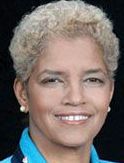Big ideas work best, former Atlanta mayor says
Published 12:00 am Thursday, March 20, 2014
SALISBURY — When then-Mayor Andrew Young said he wanted to bring the 1996 Olympics to Atlanta — in the centennial year when the games were supposed to be held in Athens, Greece, no less — Shirley Franklin had doubts. Big doubts.
“I laughed — because I was short-sighted,” she told a Salisbury City Council luncheon crowd Wednesday.
Franklin said she was city manager at the time, dealing with the day-to-day details of running a metropolitan city.
Young, on the other hand, was approaching the end of the tenure, she said, and considering things that would matter two or three generations in the future.
Atlanta succeeded in hosting the Olympics, and the experience did just what Young hoped for. It unified the city around a common interest, it promoted economic development and helped refine the city’s brand, and it involved virtually everyone in Atlanta.
It also bore out a principle Franklin says she learned from working with mayors, community leaders and others: “the bigger the idea, the more likely it is you’ll get it done.”
That doesn’t mean that the project will be easy or without obstacles, she said. It doesn’t mean it won’t be expensive in terms of time, talent and money.
But as Franklin worked with mayors Maynard Jackson and Young and went on to serve eight years as mayor of Atlanta herself, she saw the power of big ideas.
“The bigger the idea, the more people I could get energized around anything,” she said.
The transformation of East Lake Meadows in Atlanta was one of those big ideas. So is the mission of Purpose Built Communities, the nonprofit organization that grew out of the successful East Lake experience.
Franklin, now board chair and CEO of Purpose Built Communities, described how the holistic approach to revitalization changed a blighted area dubbed “Little Vietnam” for its violence to a safe, beautiful neighborhood whose charter school posts among the best test scores in the city.
“It is a long game, not a short game,” she said.
Success did not come overnight. But, with the help of philanthropists and nonprofit partners, as well as a committed leadership team, Purpose Built is a sustainable model that can set a community on its own path of success and break the cycle of poverty.
Purpose Built Communities are built on three pillars, she said:
• Mixed-income housing, so that the neighborhood will consist of a high concentration of low income residents, as East Lake used to be with its housing projects.
• A seamless education pipeline from pre-K to college that assumes everyone can and will achieve.
• Community wellness, support mechanisms which can take many forms — recreation, financial training, adult education, health care, job training or re-training — a network of opportunities for people to lift themselves up.
Salisbury may do many of those things already, she said, with its four colleges, two hospitals and major employers, she said. “The question is, what is missing?
“What we have found, it is a singular goal, to prove that it works. And the way we prove that is coming together, and developing a strategic plan … to say that we are going to remove every single barrier that exists to those folks who are locked out.”
In the war zone that was East Lake, she said, 92 percent of the residents had been victims of crime, 18 times the national average. Today, the crime rate is half that of the rest of the city.
“We’ve helped create a sense of community,” she said.
And after posting test scores that had the neighborhood school ranked 69th among the city’s 69 schools, recent scores now put it at fourth — even with 62 percent of the children qualifying for free or reduced lunch. The average annual income has risen from less than $5,000 to more than $15,000 — not as high as was hoped, but the recession slowed progress, Franklin said.
Instead of being a drain on the city with high crime and other problems, East Lake is now a proud community that looks much like other neighborhoods. There is no reason for anyone to live in poverty in this community, Franklin said.
“And if you don’t believe that it matters to you, know that it costs more to serve communities that are not producing revenue. … And if it doesn’t cost you more money when the child is 6, it may cost you more money when he’s 18.”
Education makes a huge difference.
“In America today … without a decent education and high achievement levels, we cannot guarantee 50 years from now these communities will survive. People with means will move out, and communities will be struggling to provide day-to-day services.”
The turnaround of East Lake was so effective that organizers decided to apply the model to other communities, and now Purpose Built Communities is working with Charlotte; Spartanburg, S.C.; Birmingham, Ala.; Indianapolis; New Orleans; Rome, Ga.; and Omaha, Neb.
They’re working to reverse the trend of poverty and make a difference for generations to come. Poverty is stubborn.
“It’s not going to change on its own,” Franklin said. “And most of the time people can’t change it on their own.”





